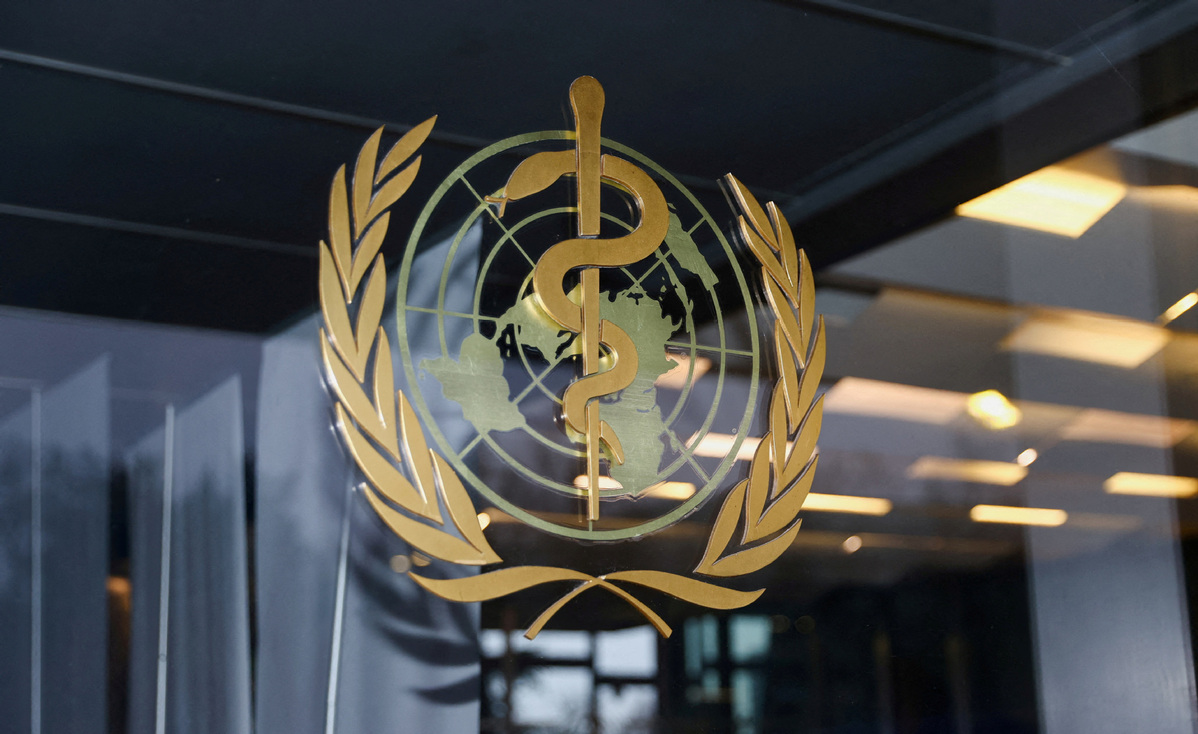WHO rejects Taiwan's bid to attend its annual assembly

The World Health Organization logo is pictured at the entrance of the WHO building, in Geneva, Switzerland, December 20, 2021. [Photo/Agencies]
China calls for end to external interference in affairs
The World Health Organization, or WHO, on Monday rejected Taiwan's bid to attend the 2023 World Health Assembly, known as the WHA, which is taking place in Geneva, Switzerland, and runs until May 30.
The decision was made by both the General Committee and the Plenary Session of the 76th WHA, WHO's highest decision-making body, which excluded a proposal on "Taiwan's participation at the WHA as an observer" in its official agenda. This is the seventh consecutive year that the global health agency has denied Taiwan an invitation.
Speaking in a media briefing on Monday, Chen Xu, permanent representative of China to the United Nations Office at Geneva and other international organizations in Switzerland, said that the WHO's repeated refusal demonstrated that the one-China principle has won universal support from the international community.
He added that before the assembly begun, nearly 140 countries had expressed to China their commitment to the one-China principle and opposition to Taiwan's participation in the event, and nearly 100 countries had sent letters to the WHO or made public statements to express support and understanding for Chinese people's opposition against the so-called Taiwan independence and their efforts in promoting China's reunification.
He said there is only one China in the world, and Taiwan is an inalienable part of Chinese territory. Taiwan's participation in the work of the WHO or any other international organizations must be handled in line with the one-China principle, which, Chen added, is the fundamental principle asserted by UN General Assembly Resolution 2758 and WHO Resolution 25.1.
A delegate from China also spoke on the Taiwan-related proposal at the third plenary meeting of the assembly, pointing out that the Chinese central government has made proper arrangements for the region's engagement in global health affairs according to the one-China principle.
"Over the past years, medical and technical experts from Taiwan, China, participated in WHO's technical activities for 24 times with 26 participants. And the (International Health Regulations) focal point was also established in Taiwan, and it has been running effectively. It can obtain timely information on global health emergencies, and informs the WHO in a timely manner," she said.
"After COVID-19 broke out, experts from the region were the first among those outside the Chinese mainland to be invited to Wuhan for a special briefing of genes sequence information, and dozens of technical materials were shared. Up until now, the Chinese central government has informed the region in terms of COVID-19 cases more than 500 times, including information on Taiwan people's diagnosis in the Chinese mainland.
"All these show that the claim by a few countries over the so-called gap in global anti-pandemic efforts is totally groundless."
A Chinese foreign ministry spokesperson said of the WHA's rejection, "We would like to once again make it clear to Taiwan's Democratic Progressive Party that the public opinion cannot be defied and those who play with fire will get burnt.
"We also urge certain countries to stop knowingly supporting the false narrative on this matter, stop politicizing issues about health, stop using the Taiwan question to interfere in China's internal affairs, and stop using Taiwan to contain China."